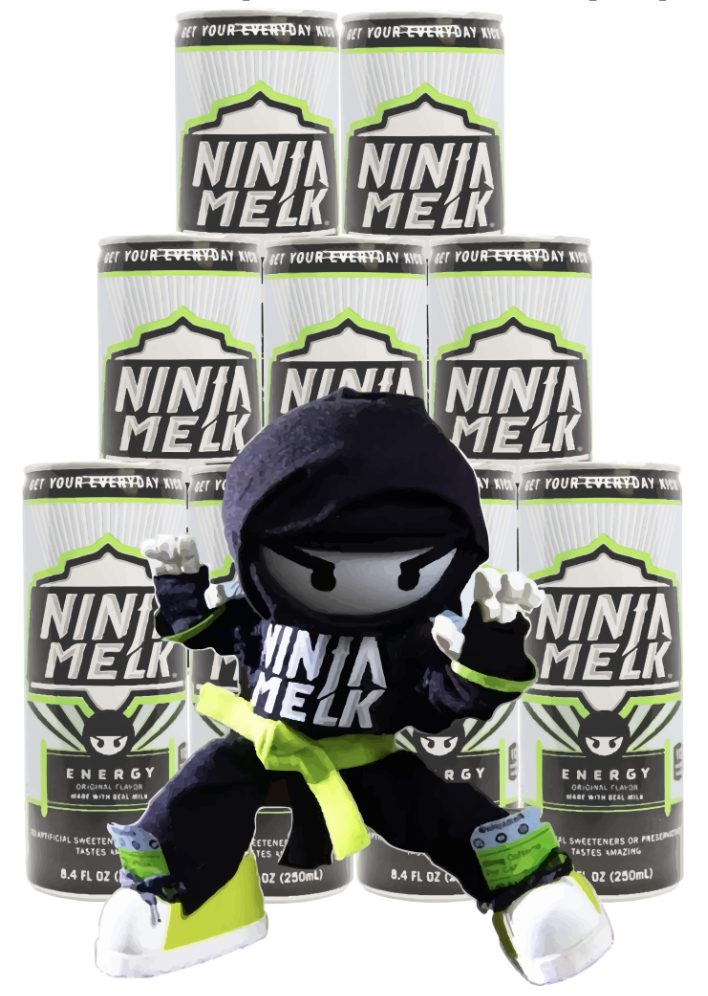The blaring sound of my alarm wakes me from my slumber, and I half-consciously hit the snooze button. Five minutes later, I hit snooze again, then again after another five minutes. After I finally get out of bed, dress and pack my bag, I quickly grab my breakfast: an energy drink from the fridge, with a cream cheese bagel on the side.
I’ll only have a can on days when I feel extra tired, I tell myself. As it turns out, I’ve been feeling extra tired almost every day.
My drinks of choice? Any flavor of Mountain Dew Rise or the original flavor of Ninja Melk.
Mountain Dew Rise has the refreshing, artificial taste of fruit soda with an acceptable amount of sugar, but carries a hefty 180 mg of caffeine, a dose that can be overwhelming at times. I generally reserve this drink for days when I have a lot of work to catch up on, and I absolutely have to stay awake.
Ninja Melk, on the other hand, is a carbonated dairy drink that very much resembles Asian probiotic drinks like Yakult. Pioneered by YouTube celebrity Ryan Higa, whom I adored as a child, Ninja Melk provides just 80 mg of caffeine, offering a sizable but not overwhelming boost in the morning. I also love the taste, which makes it infinitely harder to stop drinking it daily.
I’ve been doing my best to preserve the 12-pack of Ninja Melk in my fridge that I recently bought, but unless I’ve been to Safeway to grab a Mountain Dew Rise that morning, I have yet to go a day without drinking one.
Other popular energy drinks, like Red Bull and Bang, have too much sugar and caffeine, dissolving my teeth and making me jittery. The weird flavors of brightly colored cans of Bang, like Rainbow Unicorn, Cotton Candy and Purple Maze also taste like artificial chemical soup.
All of my friends insist that I’m addicted to caffeine because I drink an energy drink every morning, but let’s be real — I can stop whenever I want.
























